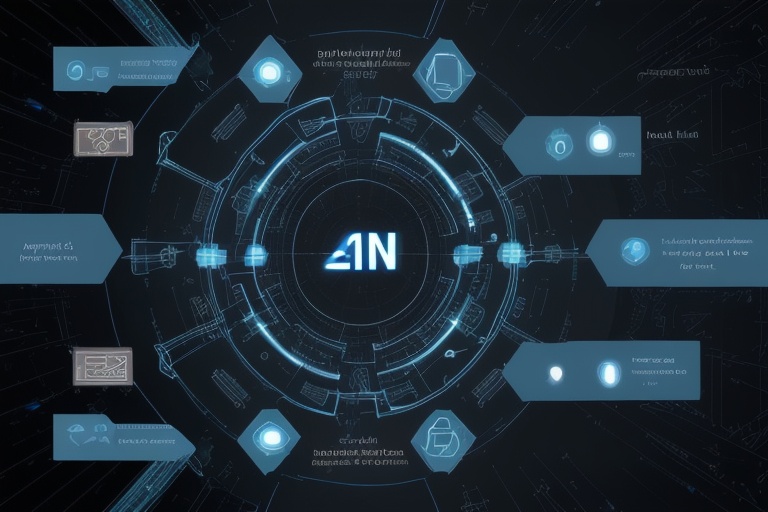Artificial intelligence (AI) has rapidly advanced from a fascinating concept to a powerful force that permeates various facets of our daily lives. It touches everything from how we commute to the way we manage our health, altering both mundane and profound aspects of the human experience. This wide-reaching influence calls for an exploration into the fundamental aspects of AI, an understanding of its diverse applications, and a discussion on its significant impact across multiple industries.
Artificial intelligence (AI) has rapidly advanced from a fascinating concept to a powerful force that permeates various facets of our daily lives. It touches everything from how we commute to the way we manage our health, altering both mundane and profound aspects of the human experience. This wide-reaching influence calls for an exploration into the fundamental aspects of AI, an understanding of its diverse applications, and a discussion on its significant impact across multiple industries.
Understanding The Basics of AI
At its heart, AI imitates aspects of human intellect through machines engineered to perform tasks typically requiring human intelligence. These tasks cover a broad spectrum, including speech recognition, problem-solving, decision-making, and linguistic translation. The overarching ambition behind the creation of AI systems is to forge intelligent entities capable of undertaking intricate activities with minimal human input.
Artificial intelligence can be broadly divided into two primary categories: narrow AI and general AI. Narrow AI, which can also go by the moniker of 'weak AI,' is purposed for singular or limited tasks—such as operating a voice-activated assistant or carrying out facial recognition processes. Conversely, general AI, or 'strong AI,' encompasses machines that possess the capability to understand, assimilate, and apply knowledge in a multiplicity of areas mirroring the capacity of the human mind.
AI Across Industries
The scope of AI's applications is broad and multifaceted, touching sectors as varied as healthcare, finance, and entertainment. For instance, in the healthcare sector, AI systems scrutinize medical data to aid in diagnoses, helping healthcare professionals arrive at more accurate and expedited choices. Within the financial realm, sophisticated AI algorithms are employed to detect fraudulent activities, assess potential risks, and manage algorithmic trading. When we shift our gaze to transportation, AI is the engine behind autonomous vehicles and traffic optimization.
The Emergence of Machine Learning
One of the most pivotal developments in AI is the emergence of machine learning—a subset of artificial intelligence centered on the creation of algorithms that empower machines to learn from data and refine their capabilities without being explicitly programmed. With extensive datasets at their disposal, machine learning algorithms can discern patterns, make predictions, and enhance their performance through exposure and experience.
Diving deeper, deep learning represents a specific branch of machine learning operating through artificial neural networks that draw inspiration from the human brain's structure and functioning. Its advent has ushered in a paradigm shift across the AI landscape, enabling significant advancements in areas such as computer vision, natural language processing, and speech recognition.
AI's Industrial Impact
The footprint of AI within various industries is already palpable and profound. In healthcare, AI-driven systems are elevating patient outcomes and diminishing the occurrence of medical errors. Within the financial sector, AI is delivering tailor-made advice and uncovering illicit transactions with a newfound precision. In the world of manufacturing, AI paves the way for optimized production workflows and minimized operational downtime. As for customer service, AI chatbots are revolutionizing the field by providing instant, accurate responses to customer inquiries.
Ethical Considerations in AI
Yet, with AI's burgeoning might comes a spectrum of ethical considerations. As we push the boundaries of AI capabilities, we must address concerns surrounding privacy, biases, and the transparency of these systems. As a society, it is our collective responsibility to ensure that the deployment of AI technologies benefits the broader populace. To support this objective, regulations and guidelines are under development, striving to secure AI's responsible utilization and integration into our daily lives.
The transformative power of artificial intelligence cannot be overstated. It is a technology that continuously redefines the possibilities within healthcare, finance, transportation, entertainment, and more. As the tide of AI and machine learning innovation surges forward, our pivotal challenge and responsibility lie in harnessing this technology with care and foresight, ensuring equitable benefits for all members of our society.
Information for this article was gathered from the following source.




